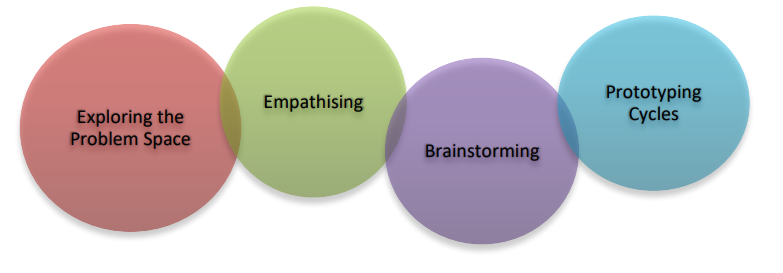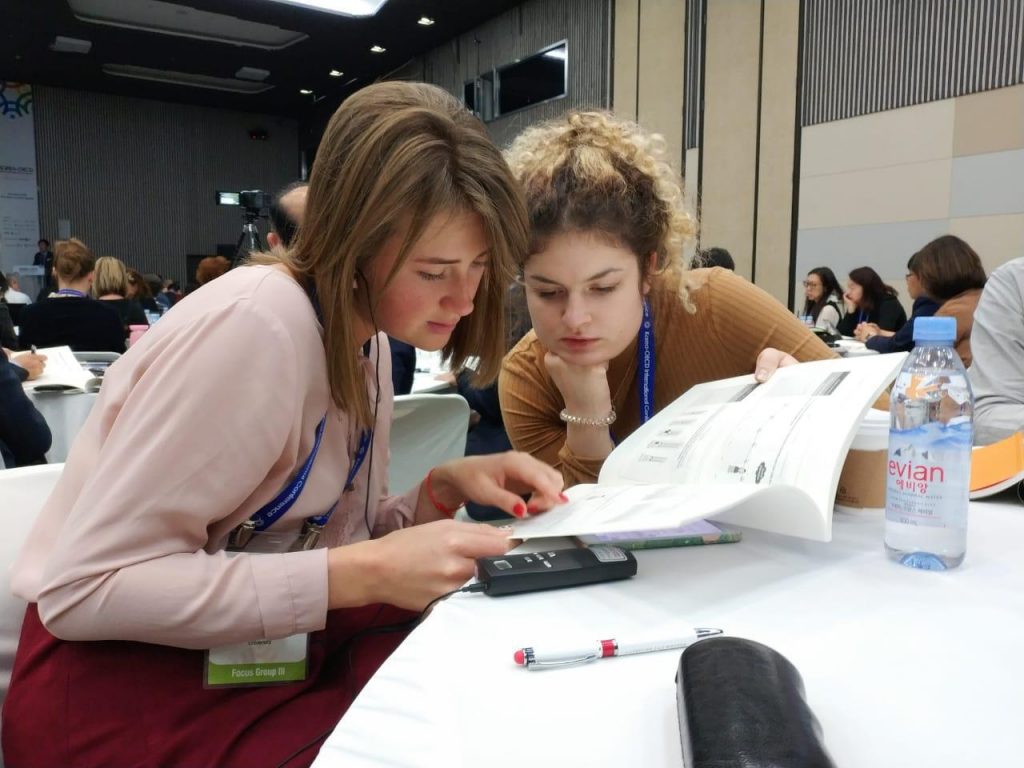On May 20–21, OECD held the 1st Virtual Workshop within the scope of The Global Forum on the Future of Education and Skills 2030. The Workshop gathered high school and university students, teachers and education stakeholders to address the current issues of education in the face of the COVID-19 pandemia.
The key aims of the meeting were to formulate the possible solutions to overcome the challenges in curriculum delivery, and to envision the postCovid-19 future of education, namely the New Normal practices in education:
- How to ensure students’ learning and well-being during school closures, as well as the transition back to school
- Exploring untapped opportunities with innovations (including both technological and non-technological innovations) to overcome the curriculum delivery challenges
- What if? Considering the economic impact on families and the education of the most disadvantaged students
The Workshop started with the welcome word by Andreas Schleicher, OECD Director for the Directorate of Education and Skills, and overview of the major challenges and changes in school education.
Next followed an induction to design thinking approach applied by OECD to solve problems and facilitate discussions. The schedule of the Workshop was arranged according to 4 design thinking steps:

To explore the problem space, there was a brief overview of students’ voice and experiences. A number of student speakers representing high schools in Denmark, China, the US and Portugal shared the insights of the challenges that their schools and peers encountered due to the distance learning.
At the next stage, the participants were divided into multi-stakeholder groups in order to emphasize and brainstorm the highlighted problems and suggest students-centred solutions. In small groups they examined different aspects of suggested ideas such as relevance, financial implications, timeline, political feasibility, trade-offs or tensions foreseen, etc.
MCU students Anastasia Nikolaeva and Milena Bregovskaya who participated in the previous OECD sessions in South Korea, joined the Workshop and contributed their ideas to the collaborative results. Here is their account of the group discussions.
Anastasia Nikolaeva
The Workshop was held for two consecutive days, which made it easier to reflect on the work done on each day of the Workshop. To arrange the meeting a three-pronged approach was adopted: students, teachers and policy makers were assigned to discuss access to learning, quality of learning, student well-being. I couldn’t have been happier to discover that my working group was to discuss access to learning: this issue strikes a professional and a personal chord with me, a soon-to-be graduate and a volunteer at the Civic Assistance Committee – a non-profit organization the work of which includes helping children with a migration background to gain access to education.
On the first day of the workshop our group decided to work on the two solutions: the first one centered on refurbishment of older computers, which may be then distributed among disadvantaged students who do not have stable Internet connectivity; the second solution was proposed by me – peer-teaching sessions at school. This idea consists in students helping those falling behind and ensures that the sessions are available as well as welcoming to students of diverse backgrounds. On the second day we were to propose a step-by-step plan leading to the implementation of the solutions. We agreed on the three phases required for the idea of peer teaching: mapping of needs, identifying people (volunteers to teach), matching students.
The idea of peer teaching was also expressed in other groups: we can connect university and high school students so that peer teaching can happen, we can and should build clubs and societies to collaborate and learn from each other. Andreas Schleicher says that the 2030 Learning Compass is being put to the test; in my opinion, it underscores the need for a strong network between students and educators. After all, it is our responsibility to take agency over our future and provide a helping hand to those who need it most.
Milena Bregovskaya
Throughout two days of collaborating in our working group we managed to come up with more than 15 ideas on how distant learning has already influenced and still might influence all the stakeholders of the educational process and the education system in general. We focused mainly on the topic of changes in the curriculum, and, to be more specific — on whole child approach to the pedagogy and teacher support.
The core conclusions we have come to are: there must be appropriate pedagogy in support of whole child approach; teacher training in support of these mechanisms should be introduced on the long term basis; mechanisms to involve parents into the educational system should be created and implemented so that parents were able to help and support their school children not only during distant learning, but long after it as well.
The Workshop resulted in a set of action plans and individual committments generated by each working group that will be shared with the broader public as an output of the e2030 community.


